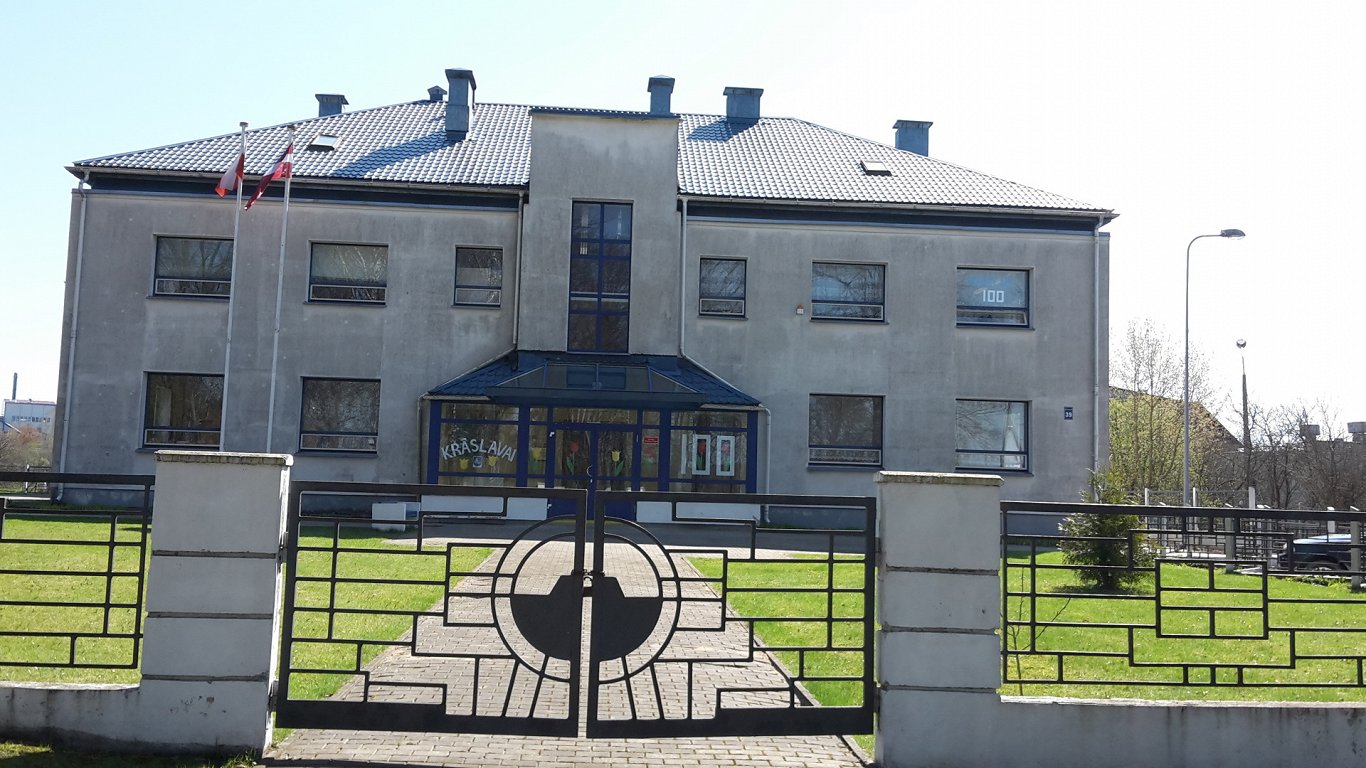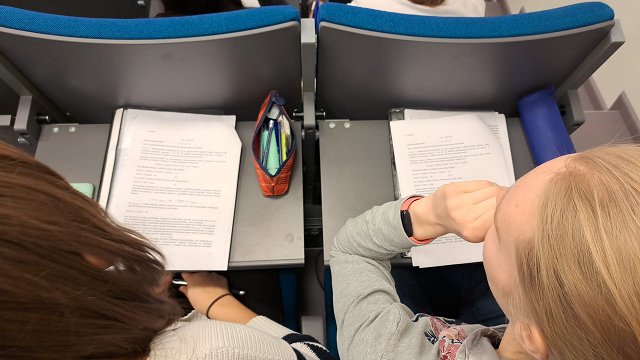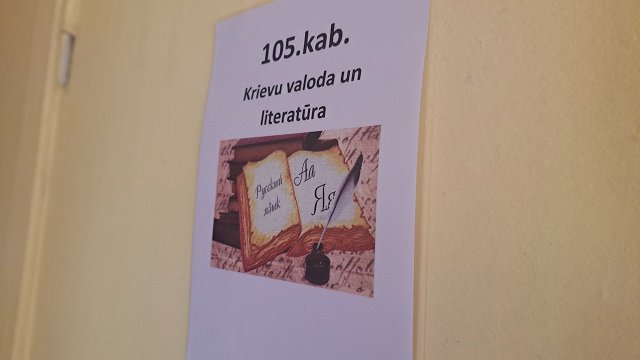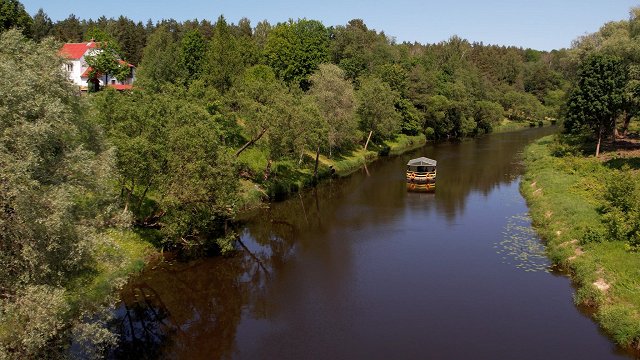As reported earlier by LSM, after the intended closure of the small school, the Krāslava Municipality Council plans to continue its program at the Varavīksne minority secondary school instead.
Meanwhile, the Ministry of Education and Science (IZM) does not provide its consent for the liquidation of the Polish school until the political consultations of the countries of Latvia and Poland have taken place.
"There are not many children in the school, 45 students from years 1-9. Years 1 and 2, 3 and 4, 5 and 6, 7 and 8 are combined, year 9 is separate. On average, there are six children in the classroom, 10 children in the largest combined class. The fact that classes are combined makes work a little more difficult, but on the other hand, with so few children, teachers have more opportunities to prepare and work with children more individually," said the school's deputy principal Aļona Čiževska.
Such a small number of pupils and combined classes cannot be an indicator of the quality of normal education, considers Lidija Miglāne, head of the Education Board of the Municipality of Krāslava. In February this year, the Krāslava Municipality Council decided on the liquidation of the Count Plater Polish School as of August 31.
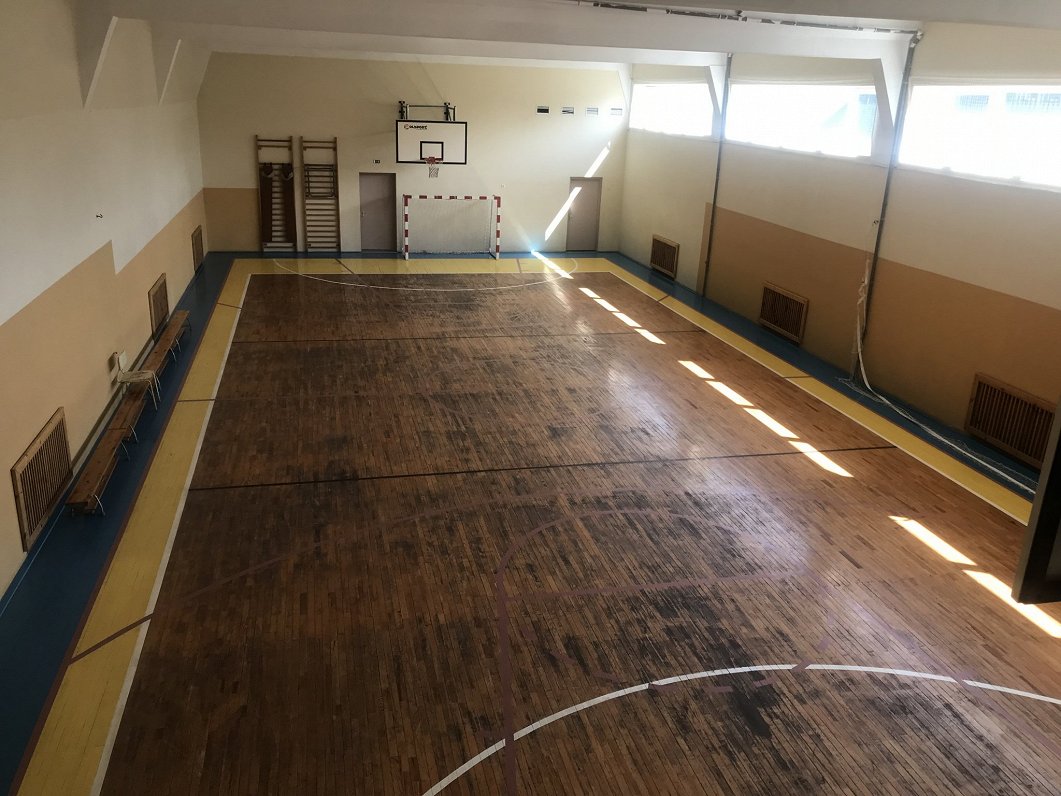
“The Krāslava Municipality Council decided to liquidate the Count Plater Polish School as a separate institution and to insert further programs for preservation for the Polish program in the Varavīksne High School of Krāslava. Because it is a minority school where the teaching process can be fully organized in classrooms. Also in the Varavīksne High School, children learn the subjects in Latvian, but we could split the [minorities] between Russian and Polish. The [subjects in Polish] are Polish language and literature, design and technology and theater art in Polish, everything else happens in Latvian,” Miglāne said.
However, a municipal decision cannot be put into action without the consent of the IZM.
“On March 7, we sent them a letter on our decision, yesterday we received an answer,” said Lidija Miglāne.
The letter states that IZM does not provide its consent for the liquidation of the Polish school in Krāslava until the political consultations of the countries of Latvia and Poland have taken place. Namely, the school's fate hangs in the air three months before the start of the new school year.
“When the teaching year comes to an end, political discussions suddenly start. At the end of May, scheduling for teachers should be planned [..]. Question: Where were we before? Why didn't we discuss before?” said Miglāne.
At the root of the problem was the Polish-Latvian cooperation program signed at the beginning of this year, which included, among other things, the continuation of the activity of the school but without a guarantee of funding.
"The Ministry has already taken its first step when in October, without listening to our views, this cooperation program for Latvia and Poland was developed, in which it was recorded that the school will be maintained. And the whole burden of responsibility was placed on the shoulders of the municipality. On October 18, I sent my reasoned objections to the IZM Working Group, why I cannot write in the program that the State of Latvia is committed to maintaining the school because it is a burden on the shoulders of the municipality. With one state funding that has been allocated in targeted grants, it is not possible to keep up an educational program," Miglāne said.
The maintenance of the Polish school costs the local government the highest amount.
“Overall, the Polish school costs the municipality around €180,000 this year, which is an abnormal figure,” said Miglāne
The talks about the liquidation of Kraslav's Polish primary school, the insufficient number of pupils, and funding, respectively, have been taking place over several years. Every time this kind of flare-up was followed by action on the Polish side to allocate funding. But this time it hasn't happened.
“In previous years, funding was granted in the month of March by a decision of the Polish parliament. Last year, when converted from zloty to euro, they were around €28,000. Not a cent has been allocated this year,” Miglāne said.
To comment on the situation, Latvian Radio addressed both the Latvian Polish Union and the Ministry of Education and Science, but neither answered the calls.
On September 1, four children were planning to study in Year 1 at the Polish school.
